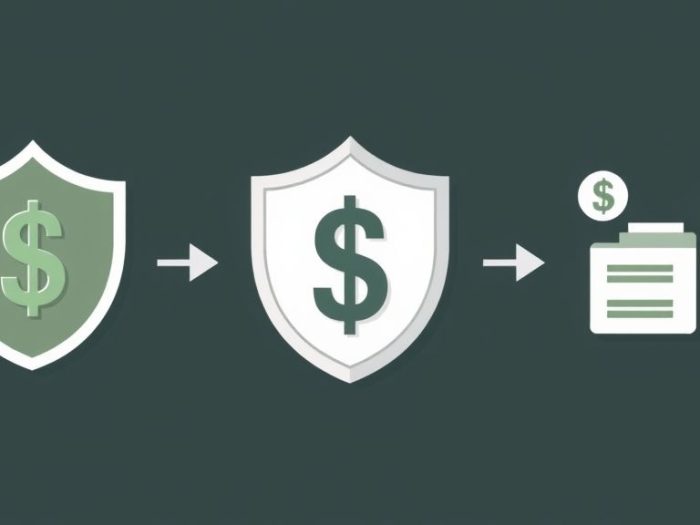Generating passive income is a great way to build wealth, but it’s crucial to
understand the tax implications. Effective tax strategies can help you keep
more of your hard-earned passive income. This article explores key tax
strategies for various passive income streams, empowering you to optimize your
tax situation.
Understanding Tax Implications of Passive Income
Different types of passive income are taxed differently. It’s essential to
know how each stream is treated to plan effectively.
Common Passive Income Streams and Their Tax Treatment
1. Rental Income
Rental income is generally considered passive income and is reported on Schedule
E of Form 1040.
-
Deductions: You can deduct various expenses, including mortgage
interest, property taxes, repairs, maintenance, and depreciation. -
Depreciation: This allows you to deduct a portion of the
property’s value over its useful life, reducing your taxable income.
2. Dividend Income
Dividend income from stocks is generally taxed as either ordinary income or
qualified dividends.
-
Qualified Dividends: These are taxed at lower capital gains
rates if certain holding period requirements are met. -
Ordinary Dividends: These are taxed at your ordinary income tax
rates.
3. Interest Income
Interest income from savings accounts, bonds, and peer-to-peer lending is
typically taxed as ordinary income.
4. Royalty Income
Royalty income from copyrights, patents, or natural resources is reported on
Schedule E.
-
Deductions: You can deduct expenses related to generating
royalty income.
5. Affiliate Marketing Income
Affiliate marketing income is generally taxed as ordinary income.
-
Deductions: You can deduct business expenses, such as website
hosting, marketing costs, and software.
Key Tax Strategies for Passive Income
1. Maximize Deductions
Carefully track and deduct all eligible expenses to reduce your taxable income.
This is particularly important for rental income and business-related passive
income streams like affiliate marketing.
2. Utilize Retirement Accounts
Contribute to tax-advantaged retirement accounts, such as IRAs or 401(k)s, to
defer or reduce taxes on your passive income.
3. Consider Business Structure
If you’re generating passive income through a business, consider the optimal
business structure (sole proprietorship, LLC, S corporation) to minimize your
tax liability.
4. Offset Passive Losses
If you have losses from one passive activity, you may be able to offset them
against income from other passive activities.
5. Understand Passive Activity Rules
The IRS has specific rules for determining whether an activity is “passive.”
Understanding these rules is crucial for accurate tax reporting.
6. Capital Gains vs. Ordinary Income
Maximize income that qualifies for lower capital gains rates (e.g., qualified
dividends) while minimizing income taxed at ordinary rates.
7. Consult a Tax Professional
Tax laws are complex and can change. Consulting a qualified tax professional
can provide personalized advice and ensure you’re taking advantage of all
available tax-saving opportunities.
Disclaimer
I am an AI chatbot and cannot provide tax advice. The information provided in
this article is for general knowledge and educational purposes only and does
not constitute professional tax advice. Always consult with a qualified tax
professional for personalized guidance.
Conclusion
Effective tax strategies are crucial for maximizing your passive income. By
understanding the tax implications of different income streams and implementing
smart tax-saving techniques, you can keep more of what you earn and accelerate
your wealth-building journey. Remember to consult with a tax professional for
personalized advice.
Related Keywords
Passive income taxes, tax strategies passive income, tax deductions passive
income, passive income tax tips, rental income taxes, dividend income taxes,
royalty income taxes, affiliate marketing taxes, passive income tax planning,
tax-efficient passive income.
Frequently Asked Questions (FAQ)
1. How is rental income taxed?
Rental income is generally considered passive income and is reported on
Schedule E. You can deduct various expenses like mortgage interest,
property taxes, and depreciation.
2. What are qualified dividends?
Qualified dividends are dividends from stocks that are taxed at lower
capital gains rates, provided certain holding period requirements are met.
3. How is interest income taxed?
Interest income from savings accounts, bonds, and P2P lending is typically
taxed as ordinary income.
4. Where is royalty income reported?
Royalty income from copyrights, patents, or natural resources is reported
on Schedule E.
5. What are some common tax deductions for passive income?
Common deductions include expenses related to rental properties (repairs,
maintenance), business expenses for affiliate marketing (website hosting,
marketing), and expenses related to generating royalty income.
6. How can retirement accounts help with taxes on passive income?
Contributing to tax-advantaged retirement accounts like IRAs or 401(k)s
can defer or reduce taxes on your passive income.
7. Why is business structure important for passive income taxes?
The optimal business structure (sole proprietorship, LLC, S corporation)
can significantly impact your tax liability.
8. Can I offset losses from one passive activity with gains from another?
Yes, you may be able to offset losses from one passive activity against
income from other passive activities, subject to IRS rules.
9. What is the difference between capital gains and ordinary income tax rates?
Capital gains rates are generally lower than ordinary income tax rates, so
it’s advantageous to maximize income that qualifies for capital gains
treatment.
10. Should I consult a tax professional for passive income tax advice?
Yes, consulting a qualified tax professional is highly recommended for
personalized advice and to ensure you’re compliant with tax laws.



